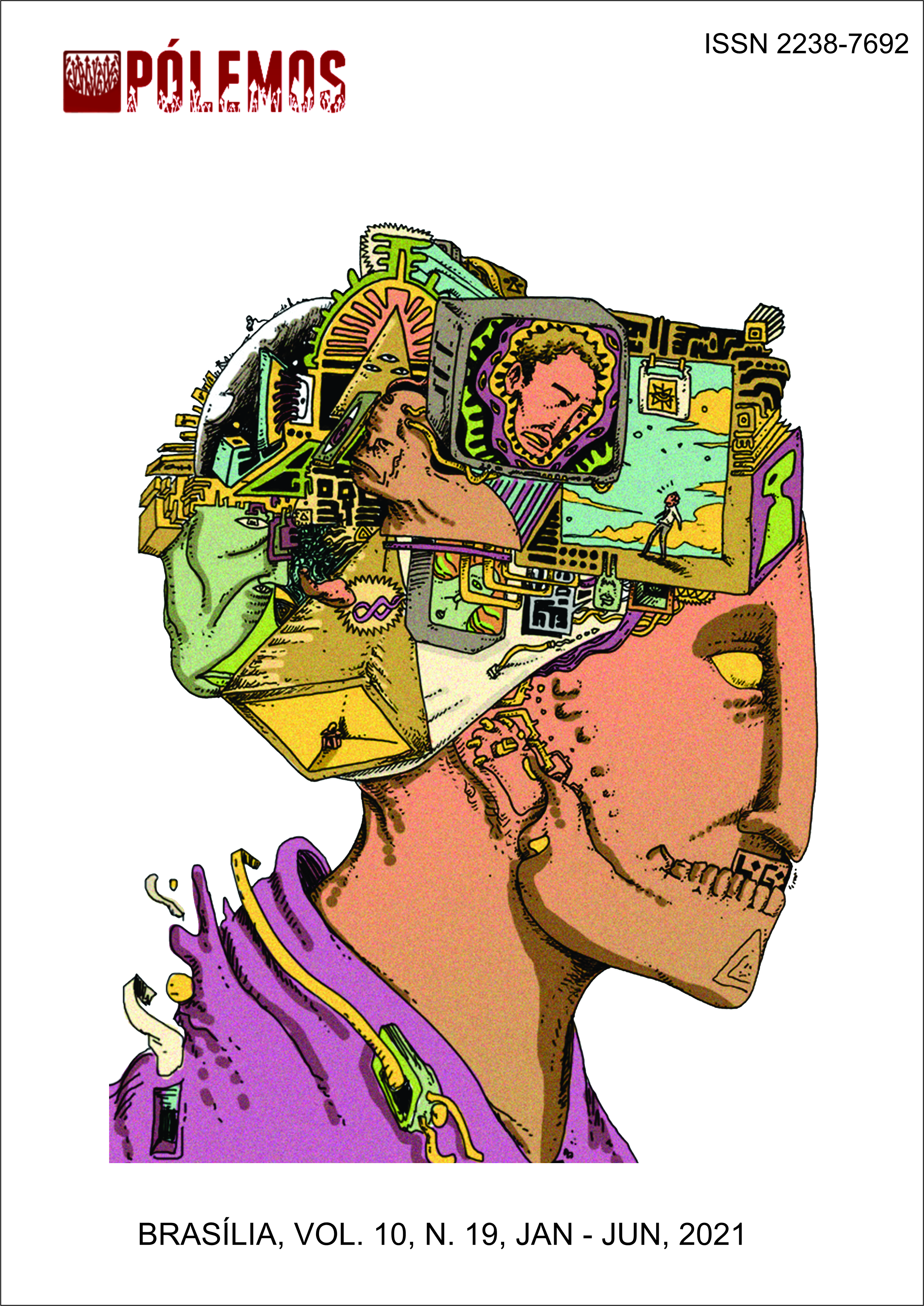THINKING OF POWER WITH FOUCAULT
reflections on domination, resistance, and emancipation from The Will to Knowledge
DOI:
https://doi.org/10.26512/pl.v10i19.34948Keywords:
Foucault. Power. Resistance. Domination. EmancipationAbstract
The article examines the conception of power formulated by Michel Foucault in The Will to Knowledge. The goal is to argue for the hypothesis that the conception defended by Foucault in that book has advantages in comparison to those who are the object of his criticism both in the theoretical-descriptive aspect and in the practical-political aspect. Regarding the theoretical-descriptive aspect, this article argues that Foucault’s view provides better explanations of power relations since it can account for the way how relations structured in the form of domination always depend on schemes which are beyond the control of those who occupy the position of dominator. As to the practical-political aspect, the article draws on the Will to Knowledge’s discussion on resistance to argue against the reading that considers Foucault to be skeptic regarding agency and emancipation, emphasizing the immanent and antiutopian character the notion of resistance has in his thought.
Downloads
References
ALLEN, Amy. The Politics of Ourselves: Power, Autonomy and Gender in Contemporary of Critical Theory. Nova York: Columbia University Press, 2008.
ALLEN, Amy. Emancipação sem Utopia: Sujeição, Modernidade e as Exigências Normativas da Teoria Crítica Feminista. Novos Estudos CEBRAP, São Paulo, n. 103, 115-132, nov. 2015.
BENHABIB, Seyla. Feminismo e Pós-modernismo: uma aliança complicada. In: BENHABIB, Seyla; BUTLER, Judith; FRASER, Nancy; CORNELL, Drucilla (Orgs). Debates Feministas: um intercâmbio filosófico. São Paulo: Editora Unesp, 2018.
BILLOUET, Pierre. Foucault. São Paulo: Estação Liberdade, 2003.
BUSSOLINI, Jeffrey. What is a Dispositif? Foucault Studies, n. 10, p. 85-107, nov. 2010.
CASTELO BRANCO, Guilherme. As resistências ao poder em Michel Foucault. Trans/Form/Ação, São Paulo, vol. 24, n. 1, p. 237-248, 2011.
CASTRO, Edgardo. Introdução a Foucault. Belo Horizonte: Autêntica, 2014.
ERIBON, Didier. Michel Foucault y sus contemporáneos. Buenos Aires: Ediciones Nueva Vision, 1995.
FOUCAULT, Michel. Microfísica do poder. Rio de Janeiro: Edições Graal, 1979.
FOUCAULT, Michel. Dits et Écrits: 1954-1988 (IV: 1980-1984). Paris: Gallimard, 1994.
FOUCAULT, Michel. O sujeito e o poder. In: DREYFUS, Hubert; RABINOW, Paul. Michel Foucault: uma trajetória filosófica. Rio de Janeiro: Forense Universitária, 1995.
FOUCAULT, Michel. Vigiar e Punir: História da Violência nas Prisões. Petrópolis: Vozes, 1996.
FOUCAULT, Foucault. As Palavras e as Coisas. 8. ed. São Paulo: Martins Fontes, 1999.
FOUCAULT, Michel. Em defesa da sociedade: curso dado no Collège de France (1975-1976). São Paulo: Martins Fontes, 2010.
FOUCAULT, Michel. História da Sexualidade 1: a vontade de saber. Rio de Janeiro: Paz e Terra, 2018.
FRASER, Nancy. Foucault On Modern Power: Empirical Insights And Normative Confusions. Praxis International, Nova Jersey, vol. 3, n. 1, p. 272-287, 1981.
HABERMAS, Jürgen. Between Facts and Norms: contributions to a discourse theory of law and democracy. Massachusetts: MIT Press, 1996.
HONNETH, Axel. Freedom’s Right: the social foundations of democratic life. Columbia: Columbia University Press, 2014.
LEMKE, Thomas. Biopolítica: críticas, debates e perspectivas. São Paulo: Editora Politeia, 2018.
LYNCH, Richard. A Teoria do Poder de Foucault. In: TAYLOR, Diana (Org.). Michel Foucault: Conceitos Fundamentais. Petrópolis: Vozes, 2018.
ORELLANA, Rodrigo de Castro. A ética de resistência. Ecopolítica, n. 2, p. 37-63, 2012.
PRECIADO, Beatriz. Manifesto contrassexual: práticas subversivas de identidade sexual. São Paulo: N-1 Edições, 2014.
TAYLOR, Chloe. The Routledge Guidebook to Foucault’s The History of Sexuality. Londres: Routledge, 2016.
Downloads
Published
How to Cite
Issue
Section
License
Copyright (c) 2021 PÓLEMOS – Revista de Estudantes de Filosofia da Universidade de Brasília

This work is licensed under a Creative Commons Attribution-NonCommercial-NoDerivatives 4.0 International License.
Todos os trabalhos que forem aceitos para publicação, após o devido processo avaliativo, serão publicados sob uma licença Creative Commons, na modalidade Attribution-NonCommercial-NoDerivatives 4.0 International Public License (CC BY-NC-ND 4.0). Esta licença permite que qualquer pessoa copie e distribua a obra total e derivadas criadas a partir dela, desde que seja dado crédito (atribuição) ao autor / Ã autora / aos autores / às autoras.


